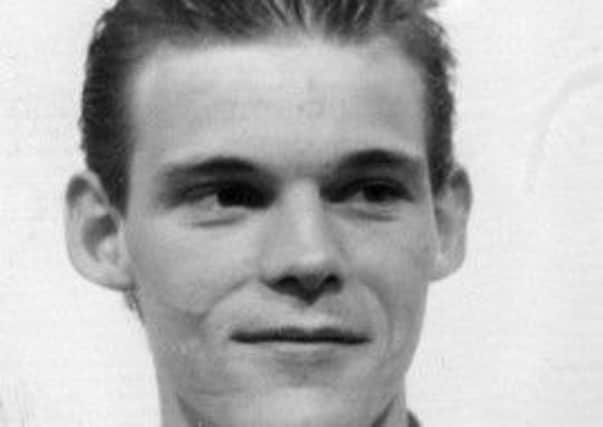Exclusive: Move to prosecute police over informer scandal


The CPS has previously refused to re-examine potential prosecutions of up to 18 officers it received files on after a catalogue of misconduct surrounding the handling of supergrass Karl Chapman was uncovered.
No officers have ever been disciplined or charged for their actions and a legal challenge lodged in the High Court claims the CPS’s refusal to reconsider prosecutions is “irrational” and “unlawful”.
Advertisement
Hide AdAdvertisement
Hide AdWhile under the supervision of West Yorkshire Police, Chapman had access to heroin and alcohol, was taken to a brothel, had a relationship with a policewoman and received thousands of pounds in rewards he wasn’t entitled to.
Nearly all the improper inducements were concealed by officers during a trial in which Chapman’s evidence was crucial to securing the convictions, in 1998, of brothers Daniel Mansell and Paul Maxwell for the murder of Wakefield pensioner Joe Smales.
The convictions were finally quashed, after a lengthy inquiry into the police misconduct, in 2009 and lawyers acting for Mr Mansell have now launched judicial review proceedings.
The legal move follows a Yorkshire Post investigation which detailed the full scale of police wrongdoing.
Advertisement
Hide AdAdvertisement
Hide AdMr Mansell’s solicitor, Matthew Gold, subsequently wrote to Keir Starmer, the Director of Public Prosecutions (DPP), in May to ask the CPS to reconsider bringing charges.
The request was refused in July, prompting the High Court challenge against the DPP, who is head of the prosecution service.
Mr Gold said: “The claimant, Daniel Mansell, hopes the High Court will agree that it’s about time the CPS agreed to review the strong evidence against the officers and to make a favourable charging decision in order to attempt to hold some or all of the officers to account for what they did.”
The court application, drawn up by specialist human rights barrister Alison Gerry, says the CPS failed to acknowledge the impact of stinging criticism from some of the country’s most senior judges delivered at the conclusion of appeal proceedings – and after the decision was taken not to prosecute any officers in 2006.
Advertisement
Hide AdAdvertisement
Hide AdAfter the Court of Appeal quashed the convictions in 2009, the Supreme Court later ruled Maxwell could face a re-trial at which he pleaded guilty.
But the Supreme Court ruling, published in 2011, delivered withering criticism of the police and expressed incredulity that no officers had been held to account.
Ms Gerry’s High Court challenge says the decisions and judgements of both courts and the decision of the CPS to accept the devastating findings of a Criminal Cases Review Commission report into the police misconduct should have led the CPS to reconsider charges.
The barrister says these are “relevant factors that have arisen since the decision in 2006 not to prosecute that were not and should have been taken into account and should have led the defendant to reconsider the evidence against police officers and consider instigating prosecutions for misconduct in a public office and/or offences of perverting the course of justice. Not to have done so was irrational”.
Advertisement
Hide AdAdvertisement
Hide AdThe application goes on to outline the catalogue of police misconduct before challenging a series of contentions, put forward by the CPS in a letter in July of this year, as to why prosecutions would not be reconsidered.
It also states that if the CPS ultimately still decides not to prosecute, it should explain why it accepted the proposition, during appeal proceedings, that officers conspired to pervert the course of justice.
The different approach when considering prosecutions “appears, at least on the face of it, to be irrational,” the court document says.
The evidence does not support CPS claims there was no criminal intent or officers merely desired “to keep Mr Chapman happy”, it adds.
Advertisement
Hide AdAdvertisement
Hide AdIt further claims the CPS is wrong to rely on comments from one of five judges in the Supreme Court judgement which suggested the lack of charges maybe due to prosecution waivers given to some officers to persuade them to come forward as witnesses. The application says waivers were only in respect of disciplinary action, not prosecution.
It concludes: “Judges of both the Court of Appeal and the Supreme Court considered that a large number of officers of WYP had been involved in a conspiracy to pervert the course of justice.”
A CPS spokeswoman said: “We are considering the application for permission to proceed with a claim for judicial review and will respond as appropriate in due course.”